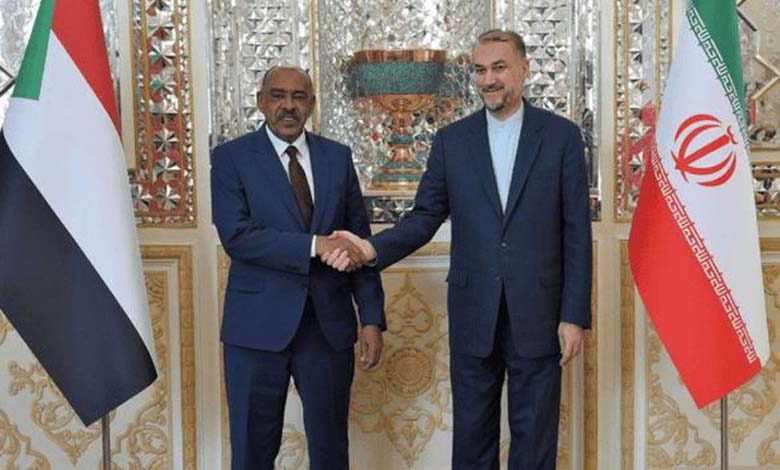Iran Seeks Rapprochement with Sudan to Gain Foothold in Red Sea

Political analyst Ashraf El-Ashry from Al-Ahram Center revealed that the Sudanese-Iranian rapprochement at this juncture carries serious implications that disrupt the military equation between the Sudanese army and the Rapid Support Forces, noting that the Sudanese government sought this rapprochement to obtain more drones, in which Tehran excels in manufacturing.
El-Ashry added that any Iranian intervention in the current war in Sudan would lead to an escalation of conflict and exacerbation of the situation in the region, especially since Tehran aims to engulf the region and establish a presence in the Red Sea through Port Sudan to confront the United States, resulting in a clear change in the rules of the game and confrontations.
Signs of rapprochement have recently emerged between Sudan and Iran, following Western media reports earlier this month indicating that Tehran had supplied weapons to the Sudanese army in its war against the Rapid Support Forces, sparking widespread debate about Iran’s expanding influence in Africa.
Iran welcomed Sudan’s desire to “revive relations between Tehran and Khartoum,” emphasizing the need to open a new page that strengthens the path of diplomatic relations between the two countries, considering that resuming relations compensates for opportunities described as “lost,” according to the official Iranian news agency IRNA.
In the same context, Dr. Mohamed Abdelkarim, a researcher in African affairs, stated that the Sudanese-Iranian rapprochement is part of a broader process aimed at extracting Khartoum from its current crisis, amid worsening intervention by regional Arab and African parties in favor of the Rapid Support militias, and the imposition of painful choices on Khartoum, while increasingly sidelining its role in seeking a strong ally.
Abdelkarim added that Khartoum aims to strengthen its negotiating position against the Rapid Support and some regional powers that openly support the role of these forces in the transition, through logistical, financial, political, and military support, and that the Sovereignty Council excludes any future role for these forces in their current form, affirming that this rapprochement adds to the intensity of the conflict rather than reaching a completely new phase.
Regarding Iran being proxies in Sudan, Dr. Mohamed El-Abadi, an expert in Iranian affairs, told Al-Masri al-youm that it is impossible for Iran to have proxies in Khartoum, and the Sudanese government would not allow this action, even if Tehran, cunningly, sought to push this dossier by restoring relations.
El-Abadi mentioned that the head of the Transitional Sovereignty Council, General Abdel Fattah al-Burhan, brought Iran to Sudan as “the one calling for help by lighting the fire,” to be a deterrent force against the Rapid Support militias by providing drones to Khartoum, especially the Shahed 136, stressing that what happens next will be crucial in that relationship.












